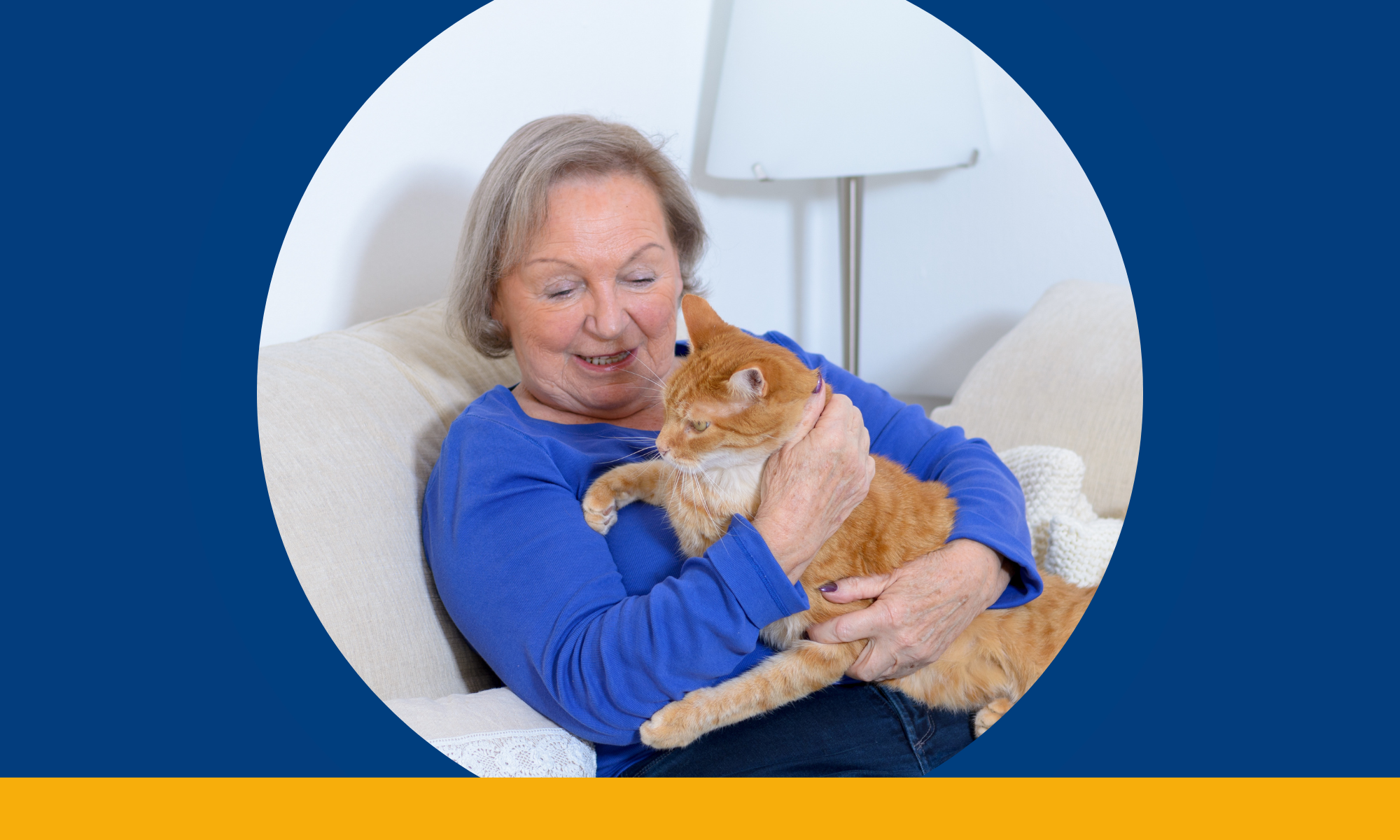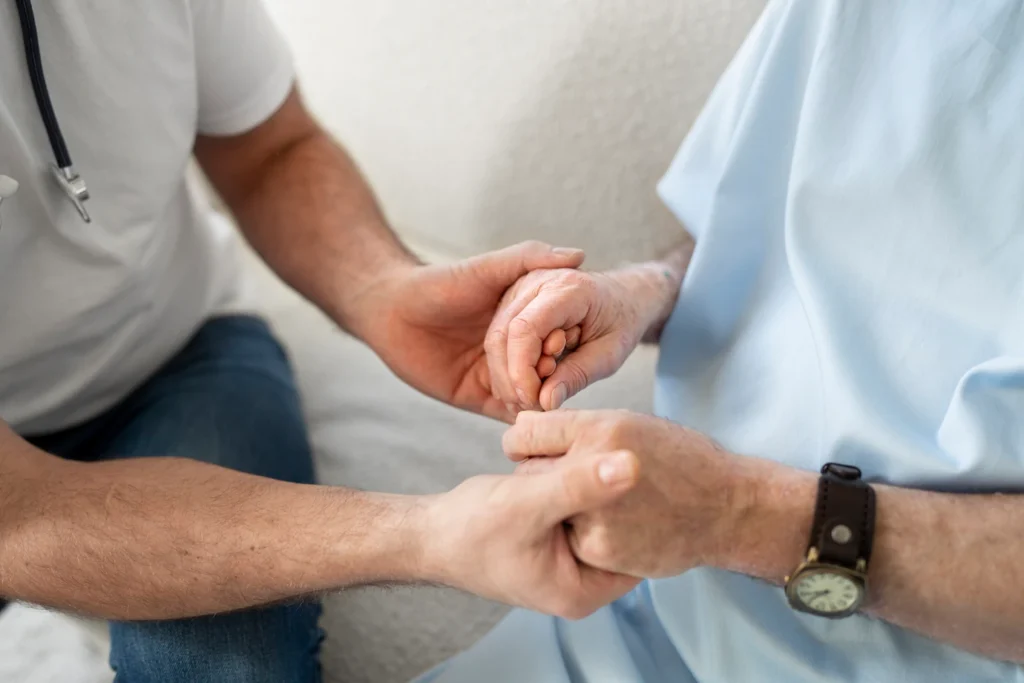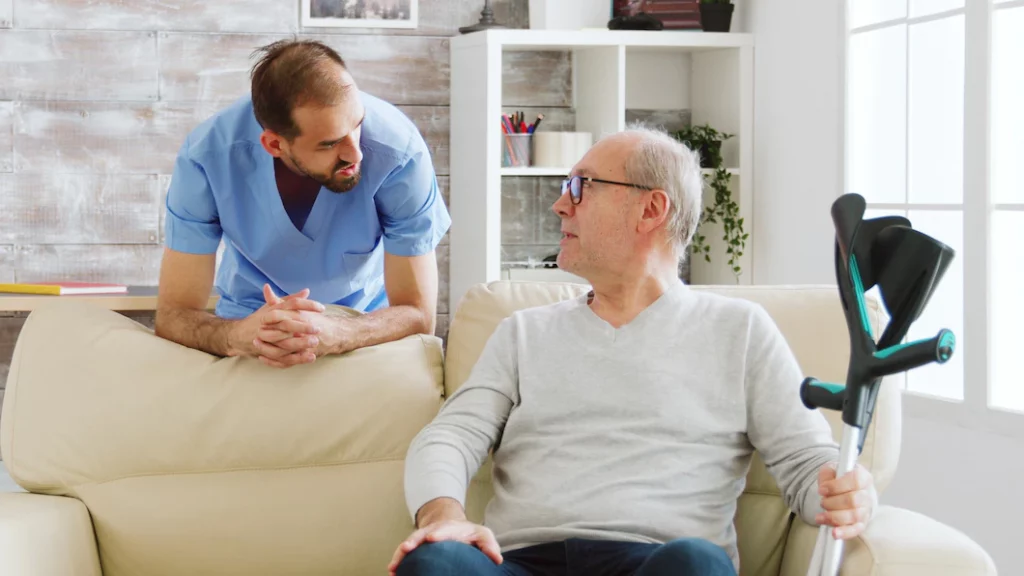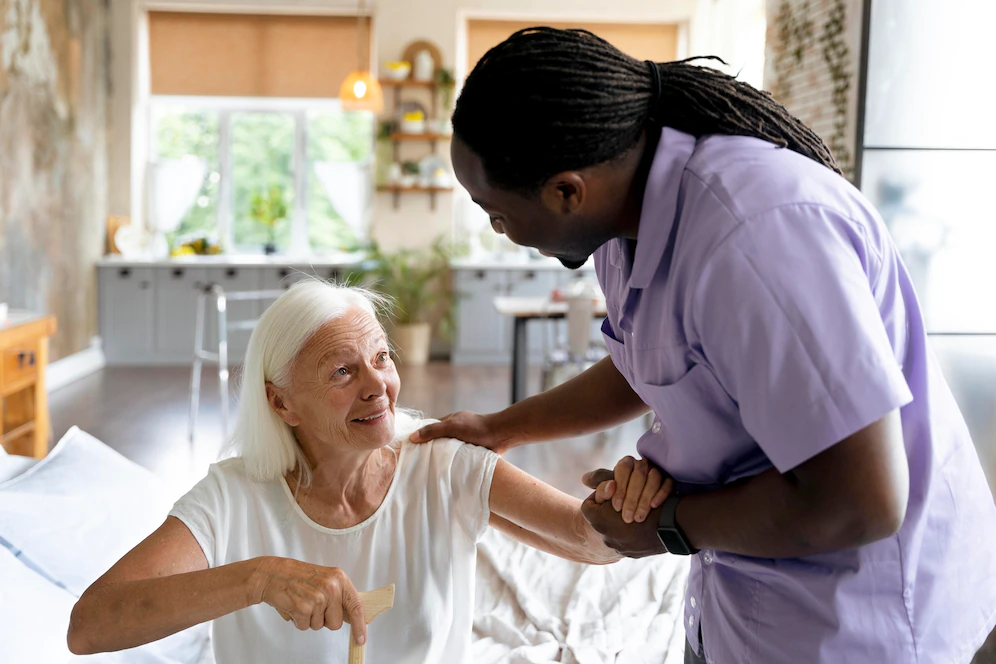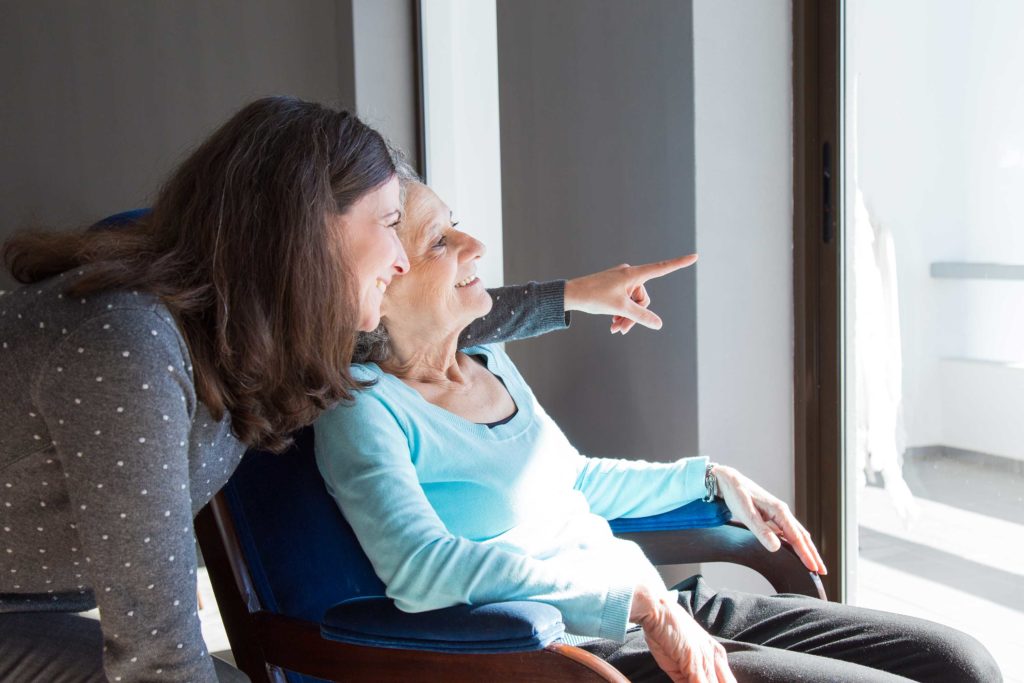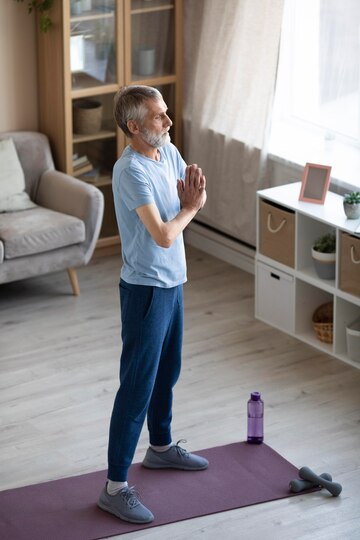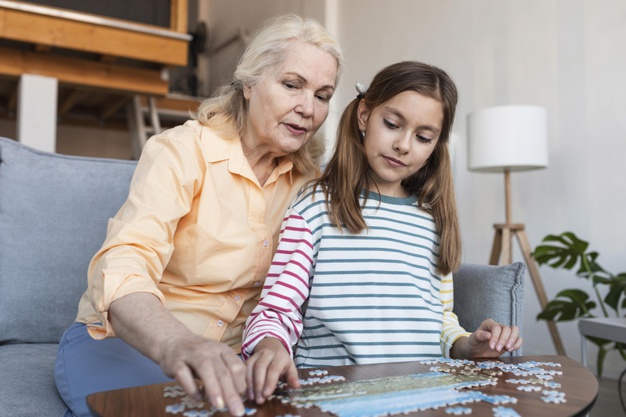What is the Most Requested Support Service for the Elderly?
As the global population ages, the demand for services that cater specifically to the elderly is on the rise. This population is growing faster than ever before, leading to an increased need for tailored support. Whether it’s healthcare, daily living assistance, or emotional support, the types of services that are required are diverse. What is the most requested support service for the elderly? There is one service that consistently tops the list in terms of requests and importance, that is in-home care, also known as domiciliary care. This service fits easily into people’s lives and is immediately responsive to any changes in need that occur.
Home care with Care 24-7
Individuals who use our services range from the elderly to those with physical disabilities, dementia or those who are nearing the end of their life. Care is also available for those who are returning from a stay in hospital offering respite for family carers.

Jean Pickles, Care 24-7’s Senior Manager, discusses why home care is so beneficial in helping individuals live their lives in comfort and safety.
Jean Pickles, Senior Manager of Care 24-7

Over the last five years there has been greater nationwide focus on the emotional and physical benefits of supporting individuals to remain at home, aiding faster physical recovery and psychological respite in familiar surroundings. There is a deeper understanding of the needs of those individuals living with dementia and how their lives can be enriched with the right support to flourish at home without the upheaval of moving to a new place away from the memories that remain.
At Care 24-7 home care is our passion. We engage and support individuals and loved ones to be in control of their choices, enabling them to live their best life in the comfort of their home with a caring circle around them. Care 24-7 offers a range of support, delivered by a team who arrive with a friendly face and the time to listen, helping with the things that may no longer be manageable and supporting individuals to be in control of their own life.
From years working in the social care sector and seeing the work that is carried out every minute of every day, I have seen first-hand the acts of kindness and compassion and the difference the home care teams make to individuals’ lives. For those who live alone and have no support circle, the home care team may be their only lifeline. It is an unseen, under recognised social service, but our team are deeply valued and recognised as special people by our clients and by Care 24-7.
Why In-Home Care is in High Demand
As people age, many face challenges that can make living independently more difficult. A large majority of elderly individuals prefer to stay in their own homes as long as possible rather than move into assisted living facilities or nursing homes. This preference for aging in place has fueled the demand for in-home care services.
1. Maintaining Independence
One of the most significant benefits of in-home care is that it allows seniors to retain their independence. Many elderly individuals may only need a few hours of help each day, whether it’s with house chores, personal hygiene, or meal preparation. In-home care provides just the right amount of assistance without taking away the comfort of any familiar surroundings.
2. Personalised Care
Depending on the needs, caregivers can assist with daily tasks, provide medical care, or simply offer companionship. This flexibility allows families to tailor the services to meet the specific requirements of their elderly loved ones. Whether someone requires round-the-clock care or just occasional support, in-home care can adapt to the changing needs.
Why You Can Trust Us
At Care 24-7 we are committed to providing a service of excellence. This means providing high quality, safe and effective care which treats individuals with compassion, dignity and respect.
Our experience means that we understand the overwhelming task of finding the right home care provider, whether for a friend or family member. We do our utmost to support you with all the help, advice and information you may need to give you the confidence to make your own decisions right from the start of the process.

Nearly 1 million people receive domiciliary care across the UK. Over 800,000 of them are thought to live in England.
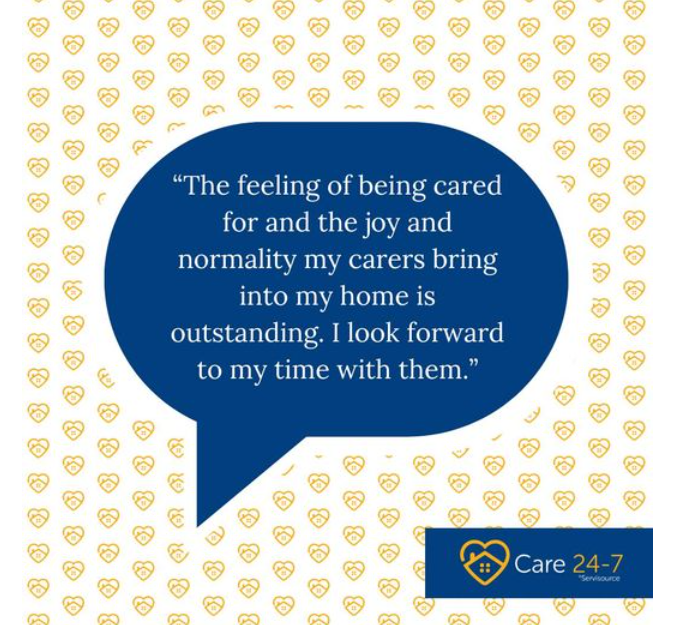
Benefits of In-Home Care for Families
In-home care doesn’t just benefit seniors, it also provides peace of mind to families. Many families are unable to provide full-time care for their elderly parents due to work or other commitments. In-home care allows families to rest assured that their loved ones are receiving the attention and care they need. Moreover, it can help prevent caregiver burnout, a common issue among family members trying to balance caregiving with their own lives.
1. Emotional Relief
Knowing that a trusted professional is providing care gives families emotional relief. In-home care workers are trained to handle the unique challenges of elder care, which can be overwhelming for those without professional experience.
2. Financial Flexibility
Compared to full-time residency in a nursing home or assisted living facility, in-home care can be more cost-effective. Families can choose the level of care required and adjust it based on their loved one’s health and financial situation. This flexibility allows families to find solutions that fit their budget while still ensuring quality care.

In-home care’s popularity stems from the desire to maintain independence, the ability to customise the level of care, and the relief it provides to families as well as financial flexibility. In-home care services offer a perfect balance between independence and assistance, enabling individuals to age comfortably in their homes. Whether it’s providing medical support or simply helping with daily tasks, it is often the key to helping individuals enjoy their later years with dignity and comfort. It ensures the right care is delivered in the right place, at home.



